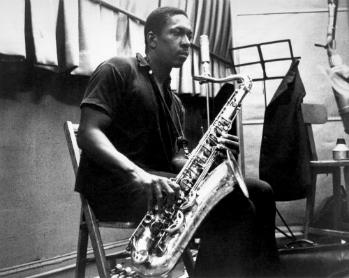Reuniting
in 2008 to both rapturous fan approval and critical acclaim, the biggest and
most-loved version of Return To Forever swept the globe selling out concerts
and picking up awards by the fistful. However it became clear toward the end of
the worldwide tour that that the group was not going to continue on for long
with guitarist Al di Meola – he himself having expressed negative thoughts on
both the choice of material and the perceived direction they might be taking.
Chick
Corea, Stanley Clarke and Lenny White though had no such qualms and very
quickly signed up for another tour almost immediately, this time of course as a
trio - and more notably, entirely acoustic. RTF Unplugged was of course another
massive success and sometime shortly after the trio reconvened in the studio,
this time with additional help from original pre-di-Meola Return To Forever
guitarist Bill Connors, French jazz violin virtuoso Jean-Luc Ponty and soul
diva, and sometime Corea and White associate, Chaka Khan.

‘Forever’
then is a double-disc set capturing the trio live and in full-flight on disc
one, and the sextet in a studio rehearsal session before a world tour on disc
two. Sadly though Connors had to pull out immediately after this rehearsal due
to ill health, and immediately be replaced late in the day by Frank Gambale.
There is in truth very little to connect the two discs, such is the vast
difference in approach, playing, feel, and simply just the musicians and
instrumentation involved. But there is much to love.
The
acoustic trio is an absolute winner, with some sterling choice material, taking
in choice standards, classic RTF pieces and of course iconic Corea
compositions. His early ‘Windows’ gets a welcome airing and the always
impressive and catchy ‘Senor Mouse’ still dazzles. A much loved tune recorded
many times over, a bad one has yet to see the light of day, and the trio here
more than do it justice.
Whilst
known for searing muscularity in their approach, the trio compellingly get to
show their more sensitive and understated sides, most notably with Bill Evans’
beautiful ‘Waltz For Debby’. Miles Davis popular favourite ‘On Green Dolphin
Street’ gets a welcome renewal, and the popular Corea tribute piece ‘Bud
Powell’ is exceptional. But perhaps most revelatory is Clarke’s ‘La Cancion de
Sofia’ which magnificently highlights the incredible interplay between the
three, and of course goes even further still to showing just how strong (and
underrated) a double-bassist Clarke really is.
Were
this first disc to be available as a single album in its own right, then it
would stand as a highly recommended four-star recording, and another glittering
jewel in the already golden catalogues of Corea, Clarke and White. Disc two
however is quite a different experience. A look perhaps into an alternative
universe of ‘what if?’ it has its moments and pleasures, but it also has its distinct
downers too.
Hearing
Bill Connors attack and tear the pieces up from his one Return album ‘Hymm Of
The Seventh Galaxy’ is a great experience, if a somewhat flawed one. Some may continue
to argue over who the more soulful player is between Connors and di Meola, but
here it is clear that Connors is not as technically proficient as the one-time
young upstart. Nor is he as comfortable with the electric Les Paul in his hands
as he is with an acoustic guitar. Regardless his playing is raw and gritty, and
his sound drips pure testosterone.
Corea’s
arsenal of classic keyboards, such as the awesome Fender Rhodes, get a
thrilling showcase here, with stunning takes on ‘Senor Mouse’ (again, but then
there’s always room for another version), ‘Captain Marvel’ and some brilliant
others. Jean-Luc Ponty flexes his muscles nicely too, appearing on five pieces,
and sometimes blending superbly with Connors guitar.
The
two Chaka Khan numbers however are destined to be unloved by anyone. ‘I Loves
You, Porgy’ in particular is astoundingly bad, with a fiery full-throttle
attitude from all concerned going everywhere and yet nowhere in a very long and
sprawling manner. Khan’s vocals themselves are strong, and to be welcomed, but its
clear here that this is a rehearsal, and not a particularly focused or winning
one.
Surprisingly
then the two best numbers here come as a tacked on bonus to the end of the
second disc. An acoustic piano and drum duet between Corea and White lights up
John Coltrane’s classic ‘Crescent’, while the early Return To Forever piece
‘500 Miles High’ is given an incredible impassioned performance by the trio
from their performance at the 2009 Monterey Jazz Festival.
So,
a genuine mixed bag, with a great four-star set filling out one disc, and a
messy sprawl littering disc two, that contains some real duds, but at the same
time gives us some absolutely sparkling moments not available anywhere else.
Where Return To Forever goes now is anybody’s guess.
***
















